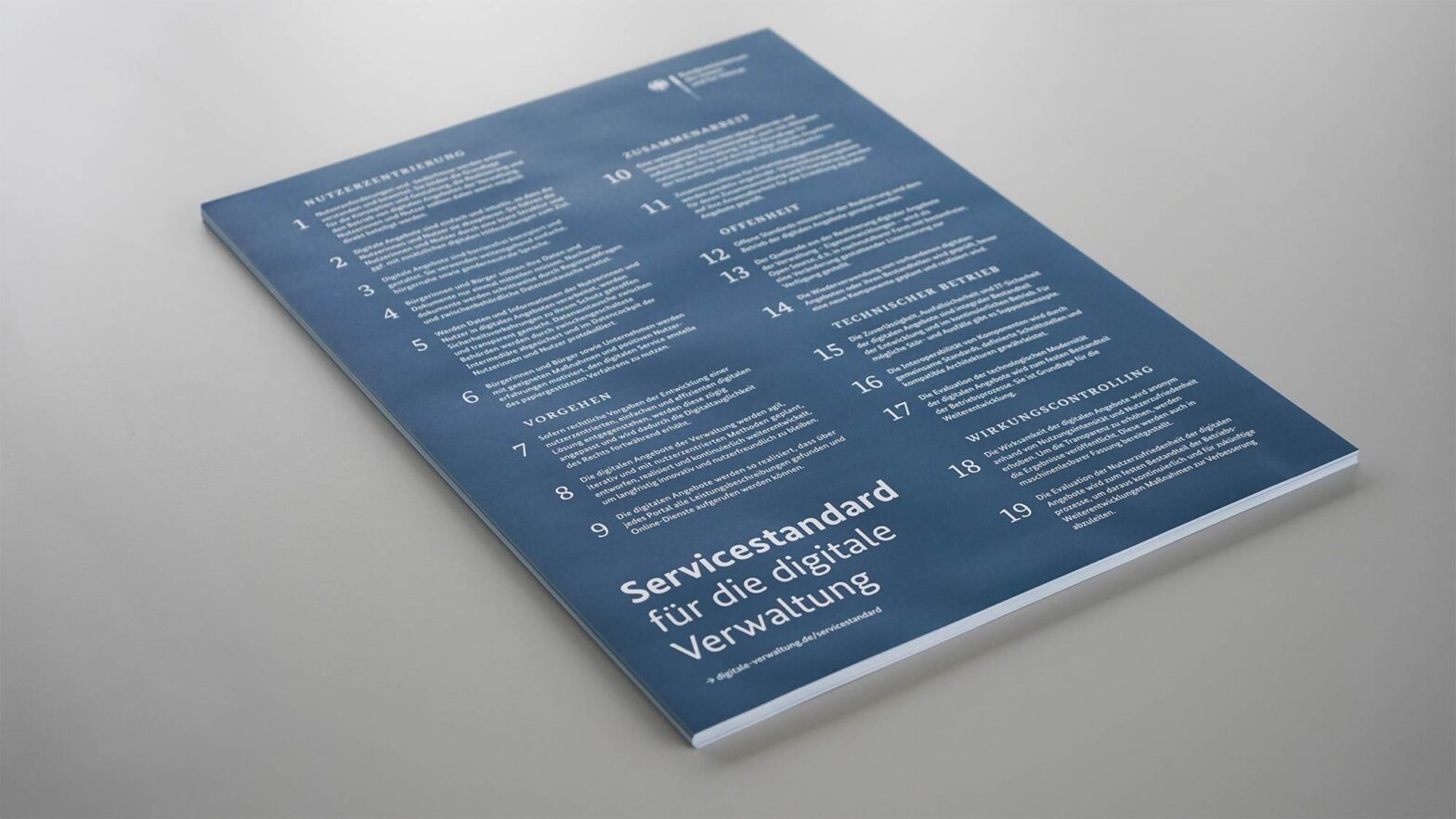New year, same standard!
Apologies when I start to bore people here.
We sent an updated Service Standard poster to the printer back in November. I only saw them when returning to the office this week.
Why? What is that good for?
Whenever I speak to public servants and the digital teams working for them, very few have heard of the Service Standard established 3.5 years ago. Quality of service and its evaluation is still rarely a talking point for people. Politicians and senior leaders occasionally talk about citizen-centricity or ease of use. But when it comes to operationalising these wishes or demands, the conversation stops.
There is a Service Standard poster from the summer of 2020. It refers to the original online access law. It also contains various logos of now-defunct initiatives and units. So, the poster needed a refresh without changing the content. I contacted the lead communication designer at the Federal Ministry of Interior for guidance and approval. Among other reasons, I did that to avoid getting in trouble again for creating unauthorised Service Standard posters. That happened in 2018 when I shamelessly mocked up a Digital Service Standard poster with the logo of the National Regulatory Control Council (Nationale Normenkontrollrat, NKR in short), an independent body reporting to the Federal Chancellery then.
After proposing a Service Standard for Germany 2 years prior, they published a draft in their annual report. However, hidden in a report, this well-intended proposal would only reach a few people. And so I put their first standard draft into some legitimate-looking poster for others to engage with, discuss and share.
I wrote a blog post in late 2018 about the developments of Service Standards in the German public sector and published my poster draft there. Swiftly, I was contacted by the NKR to take down my poster and not use their logo and content without permission. I did not follow that request, and my 2018 poster made it into various presentations and reports, including one of the OECD about service quality standards.
Knowing the people who worked on the official 2020 Service Standard, there is good reason to believe my unofficial poster from 2018 paved the way for the 2020 poster. So, some 5 years later, I got to design an updated version, taking back the design ownership. None of this matters, of course, if this remains a graphic design exercise. We have gained far too little ground since 2018. Still, almost no one applies the Service Standard principles in their daily work. Their practical adoption rate remains tiny. Users of poor public services pay the price for it.
If a new poster keeps the memory fresh and allows us to hand a physical artefact out when talking about modern ways of working, I am happy to design a few more in the coming years. Although, I hope I don’t have to.
Getting started into 2024
My week started with a properly packed calendar with team check-ins after being out for over 2.5 weeks. Sonja and I caught up on user research topics, and Marion and I plotted accessibility plans.
I participated in a naming session for the new justice information system we are building for court staff. As a working title, people gave it a non-suitable acronym unsuitable for purpose. So, in the coming weeks, we want to run a renaming process. We are taking some clues from Rebekah Barry’s classic ‘Naming teams and services’ deck and the ‘Naming your services’ guidance on the GOV.UK Service Manual. Last year, I set the bar by authoring an article titled ‘No animal names please’ (in German: ‘Bitte keine Tiernamen: Wie man Verwaltungsservices erfolgreich benennt’). I criticise the animal names derived from odd acronyms – overly popular in German government services – in that text and propose an approach to get naming right. Now, it’s time to put that guide into practice. If we do a good enough job, we might have a blog post with more examples to write.
What’s next
Next week, Caro, Sabrina and I will run a workshop on the overlaps of the Service Standard and the digital check for digital-ready legislation with colleagues from 8 different ministries.
We will also have a kick-off for some short-term fast-forward work on the justice services platform. I am very much looking forward to that.
Furthermore, I will join a design roundtable organised by the Senate of Berlin and its economic development unit. It will bring together community organisers and other design actors in the city.

